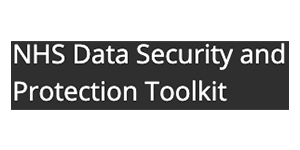Common misconceptions – and some answers
“Emailing and phoning patients is not safe.”
“We’ll get buried in rubbish emails and calls.”
“It’s impossible to deliver rapid access and choice of GP.”
“I am everyone’s favourite doctor and I won’t be able to cope.”
“It won’t work with our high numbers of non-English speaking patients.”
“A practice I know failed and reverted to their old way.”
“We can’t change the system with our salaried GPs.”
———————————————————————————-
“Emailing and phoning patients is not safe.”
GP telephone consulting or triage has been used for centuries, the first time in 1876. For years it has been the backbone of out of hours services, and it is a normal part of service for the vast majority of GP practices. Millions of consultations have been made this way, and it is now recognised by the BMA in the latest contract with NHS employers.
What is not safe is to expect a medically untrained receptionist to triage patients. Our practices never do this, though many others in effect require receptionists to triage and ration appointments because there are not enough to go round. Look forward to this changing and to a safer service.
Online access through askmyGP offers further safety because triage is done by the GP, but with detailed, structured and secure information, not email. The system does not make decisions on diagnosis, disposition or management of the patient, but complements the GP.
Insurers have given the follow advice:
“Since the responsibility for the choice of which technologies to use in discharging their duties lies with the individual clinician or their employer / supervising authority, we would not expect members to seek our approval.” Medical Protection Society
“The MDDUS does not endorse individual products and in terms of medical history taking and documenting this history, we would simply advise that doctors comply with guidance issued by the GMC in respect of both of these matters, in addition to any guidance issued by relevant Colleges or Faculties.” MDDUS
“Patients won’t accept it.”
Over 80% of the population has a smartphone or access to the internet. Almost 100% have access to a telephone. Giving easier and more rapid access to those who can use these modes frees up GP time for those who can’t, so it has to work for the patient.
We start measuring patient feedback from day one of the launch, so we know what patients think. Live charts of patient feedback from askmyGP v3 are maintained here.
How do we improve patient satisfaction? By focussing on what matters to patients, rapid response and a choice of doctor and the ease and effectiveness of our software. It is a never ending task, but one we take pride in.
“We’ll get buried in rubbish emails and calls.”
This is a common fear, but it doesn’t happen. We have not seen demand consistently rise in any practice, indeed we’ve seen it flatten and in many cases fall by 10-15% over the first year to 18 months. We have measured askmyGP online submissions and seen the replacement of telephone demand. We measure specifically the GPs view on whether a consultation “should have been self care” and it remains about 3% on average before and after the change. There are a few exceptions of course, but once patients have confidence that the doctor is easy to call, they don’t call just in case, they only call in time of need. For further evidence over 2 years, see our RCGP conference poster 2014.
“It’s impossible to deliver rapid access and choice of GP.”
A case study we entered with one of our practices, Clarendon, showed the evidence that it is possible to do both, and won the poster prize at the annual Society for Academic Primary Care conference in July 2013. Many practices are showing increases of continuity over 10%, at the same time as access is opened up and they are responding to calls in median times around 30 minutes. Measurement and feedback is core to our work, and means that these goals are not just wishful thinking, you will know exactly how well you are doing. Online, the response and choice is even easier to manage.
“I am everyone’s favourite doctor and I won’t be able to cope.”
This is often raised as the converse of not being able to deliver access and continuity together. It frequently comes up before launch, but rarely afterwards, because practices find that it doesn’t happen. The reason is that most patients don’t mind who they see (we know this from our Datalog surveys and have found with askmyGP that only 23% choose a named clinician), and while some have a preference it isn’t always for the same doctor. The other half, who don’t mind, fill up the slots with other doctors and it is the job of reception to even out the workload between GPs. It is less work overall for patients to see their regular doctor, as rework is reduced and problems are solved faster.
“It won’t work with our high numbers of non-English speaking patients.”
It is true that you cannot consult with an individual patient with whom you share no common language. However, practices find that there are many ways round this, including Language Line, relatives, an interpreter session at certain times of the week – or simply bringing the patient in. We have never yet found a practice where this made the system fail as a whole. Every practice is different in some way and adapts the system to suit. See the Balaam St case study in multi-ethnic Plaistow. The askmyGP offers the new possibility for a patient to complete a history in their own language, which is translated to present to the GP in English.
“A practice I know failed and reverted to their old way.”
We measure our success rate, currently 78%, but we are aware that many practices who have changed by other routes or DIY have run into trouble. We have developed a highly reliable intervention, thoroughly researched and supported with our own resources, as a result of what we have learned through success and failure. We have a very good idea of what to look for when agreeing to work with a practice, and may advise that it is not the right time before embarking on the change.
If a practice is currently struggling with a GP led telephone first system, we can help and have turned round difficult situations within weeks.
“We can’t change the system with our salaried GPs.”
We work with a great diversity of practices, including those which are all salaried, and have shown improvements for all. We don’t impose a blueprint, but practices are able to make their rotas more flexible. It is important to share gains with salaried GPs so that they too benefit from the change.
“We can’t afford it.”
Can you afford more staff to cope with the workload? Can you afford more locums? Can you afford the current level of stress you all your staff are living with? Can your family afford more late nights and taking work home? If you can afford all this, then you don’t need to change anything.




